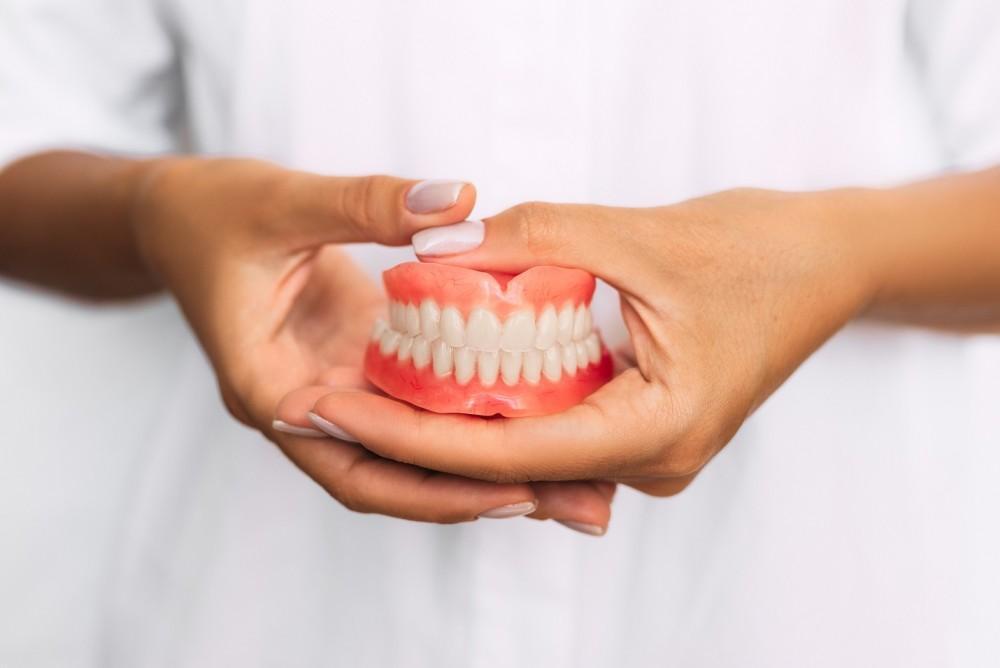Transitioning to life with dentures marks a significant step toward reclaiming your smile and confidence. Dentures are an excellent option for tooth replacement, offering a natural-looking smile and restoring proper chewing, speech, and facial support. Despite the initial adjustment period, understanding what to expect and how to navigate these early stages is crucial for a smoother transition.
The Initial Adjustment Period
The early days with new dentures can be challenging. Common issues include discomfort, a shifting sensation, and difficulties with speaking or chewing. These problems stem from your mouth adjusting to the new prosthetics. Increased saliva production and sore spots are typical during this period. Remember, it’s essential to be patient as your mouth adapts to the presence of your new dentures.
Challenges with Dentures
- Discomfort and Soreness: Initially, your gums and mouth might feel sore. This is a normal reaction as your mouth adjusts to the new prosthetic device. Over-the-counter pain relievers can help, but persistent pain should be reported to your dentist.
- Shifting Sensation: Dentures might feel loose or shift slightly in your mouth, especially when you speak or eat. This sensation typically diminishes as you get used to wearing them.
- Increased Salivation: Your mouth may produce more saliva than usual as it gets accustomed to the dentures. This response is natural and should decrease over time.
- Difficulty in Speaking and Chewing: Adjusting to speaking and chewing with dentures can take some time. Start with soft foods and practice speaking slowly to get used to the new feel.
Breaking in Your Dentures: A Step-by-Step Guide
Days 1-14: Getting Started
- Begin with Soft Foods: Soft foods such as mashed potatoes, yogurt, and pudding are gentle on your gums and easy to chew. Avoid hard, sticky, or chewy foods initially.
- Wear Your Dentures Consistently: The more you wear your dentures, the quicker your mouth will adjust to their fit and feel. Wearing them throughout the day helps expedite the adjustment period.
- Manage Increased Saliva: Frequent salivation is normal during the initial days. Swallowing more often and sipping water can help manage this temporary issue.
Days 15-29: Building Comfort and Stability
- Use Denture Adhesive: As sore spots diminish, consider using a denture adhesive to improve stability. This can help keep your dentures in place and make them feel more secure.
- Gradually Introduce Harder Foods: Begin incorporating a variety of food textures. Cut food into small pieces, chew slowly, and use both sides of your mouth to maintain balance.
- Monitor Sore Spots: Continue to monitor any sore spots or discomfort. If these persist, schedule an appointment with your dentist for adjustments.
Day 30 and Beyond: Embracing Your New Normal
- Comfort and Natural Feel: By this point, your dentures should feel more comfortable and natural. Regular use and adjustments will ensure a better fit and increased comfort.
- Regular Dental Visits: Regular dental checkups are essential. Your dentist will ensure your dentures fit securely and function properly, addressing any ongoing issues.
- Denture Maintenance: Proper care of your dentures includes daily cleaning, soaking them overnight, and avoiding harsh cleaning agents. This maintenance is crucial for their longevity and your oral health.
Embracing Life with Dentures
Life with dentures involves practice and patience, but the benefits of a restored smile and improved functionality make the adjustment period worthwhile. Here are some tips to help you embrace your new smile:
- Practice Speaking: Read aloud or have conversations with friends and family to practice speaking with your dentures. This can help improve your confidence and clarity.
- Stay Hydrated: Drinking water frequently can help manage increased saliva and keep your mouth comfortable.
- Stay Positive: Focus on the positive aspects of your new dentures. Improved appearance, better chewing, and restored confidence are all significant benefits.
When to Seek Help
If you experience discomfort beyond the initial 30-day period, consult your dentist for evaluation and possible adjustments. Persistent issues may indicate that your dentures need modification to improve fit and comfort.
Olive Dental Clinic: Your Partner in Dental Care
At Olive Dental Clinic, we are dedicated to providing comprehensive dental solutions that enhance both oral health and confidence. Our experienced dental team is here to support you through every step of your denture journey.
Schedule a Consultation
If you are adjusting to life with dentures or considering dentures as a tooth replacement option, schedule a consultation with our dental team today. We provide personalized guidance and support to ensure your comfort and satisfaction. Contact us to schedule your appointment and take the first step toward embracing your new smile.



